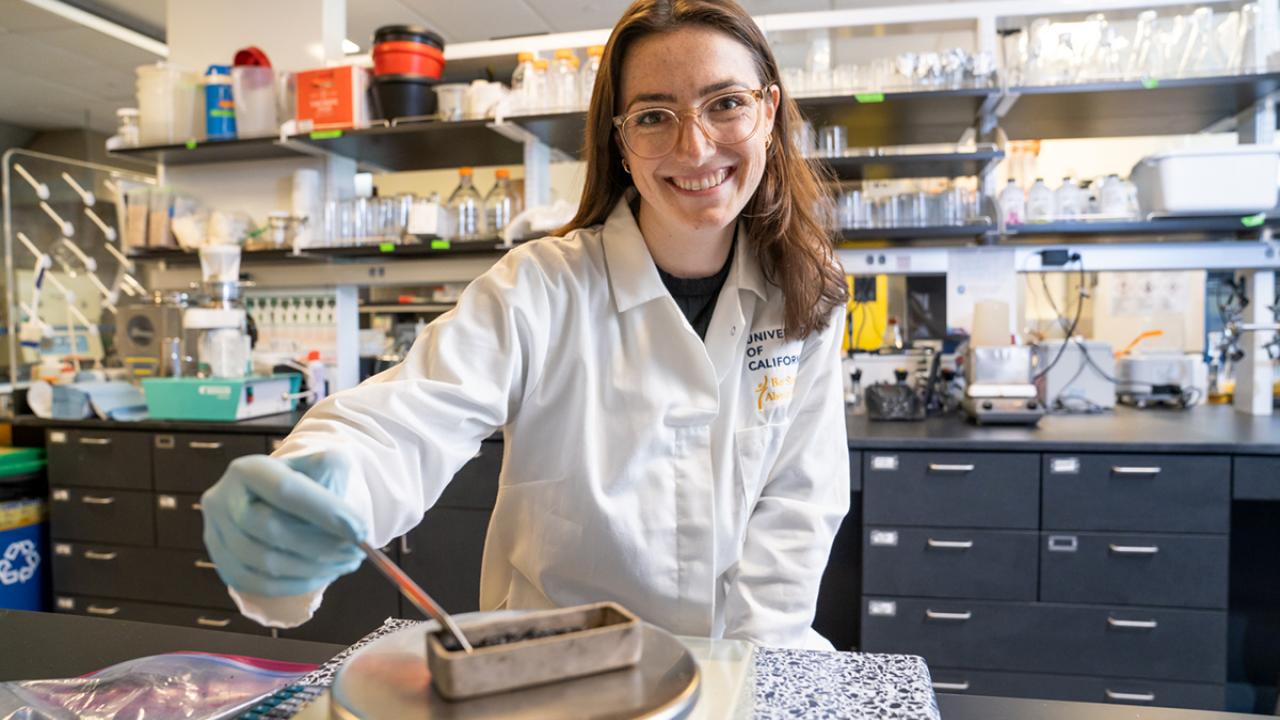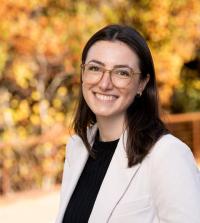
Grad Student Emily Newman a Featured Keller Pathway Fellow

Keller Pathway Fellow
Emily Newman
Recovering and repurposing waste streams from the food and beverage industries
Emily Newman is a graduate student in the Food Science and Technology Graduate Group at UC Davis. She conducts research in the brewing lab, focused on upcycling waste from the brewing industry. Emily earned a B.S. in food science and technology from UMass Amherst and has worked as a researcher at UMass Amherst and North Carolina State on plant protein and plant-based alternatives. She also interned at Dunkin’ Brands–Baskin Robbins, innovating ice cream flavors and beverage products.
Outside of the lab, Emily is vice president of the Food Science Graduate Student Association. She loves traveling and trying new foods, spending time with her dog and partner, and working on DIY projects.
In a nutshell, describe your project or venture.
In the U.S. alone, beer production generations around 56 billion pounds of waste each year. My work upcycles this waste stream, known as spent grain, into a charcoal-like material that has applications in over 50 industries.

What’s important about your research or project—and where do you hope to take it?
Brewers located near cattle farmers often donate their spent grain for feed. But those located in inner cities have less access to this distribution channel. By upcycling spent grain into a new product that has applications in agriculture and the brewing process, I have created a circular economy for the industry.
Circular models maintain resources in one loop, and limit overall emissions associated with mining/farming, producing and distributing nonrenewable resources. Implementing circular models across various industries will positively impact climate change.
What are you most passionate about in your work?
Manufacturing my materials from a waste stream breaks the cycle of plastic production. It is inspiring to make tangible goods from a substance that was once viewed as useless.
What was the most important thing you learned at the Entrepreneurship Academy?
Even the most divine innovation needs a network to support it at every step of the way. Working together to redesign our world is rewarding.
What is the most unexpected advice you received from a mentor?
If you want the best answer in a customer interview, tell them the “wrong” answer, and they’ll often correct you with the information you were hoping for.
Describe your Big Bang! project/venture. How will participation in the competition and the Ideas into Action workshops help you as an aspiring entrepreneur?
Entrepreneurship requires knowledge of a variety of industries and practices. I have found that learning-based spaces for aspiring entrepreneurs, such as the Ideas into Action workshops, are the most constructive environments to grow my knowledge and confidence in entrepreneurship.
The Keller Pathway Fellowship Program specifically supports women, cross-disciplinary researchers and other underrepresented university-based entrepreneurs. Do you have any insight, experience or concern you’d like to share?
I look for allies and supportive collaborators in every environment. I believe that acting with kindness and empathy can change someone’s experience more than we may ever know.
How will your experiences as a Keller Pathway Fellow help you to change the world?
There is innovation potential everywhere we look. The fellowship will equip me with the supporting knowledge and network to bring these innovations to life throughout my career.
Media Resources
Additional Information
Keller Pathway Fellowship Program
Source
Keller Pathway Fellow Emily Newman (Mike and Renee Child Institute for Innovati…
